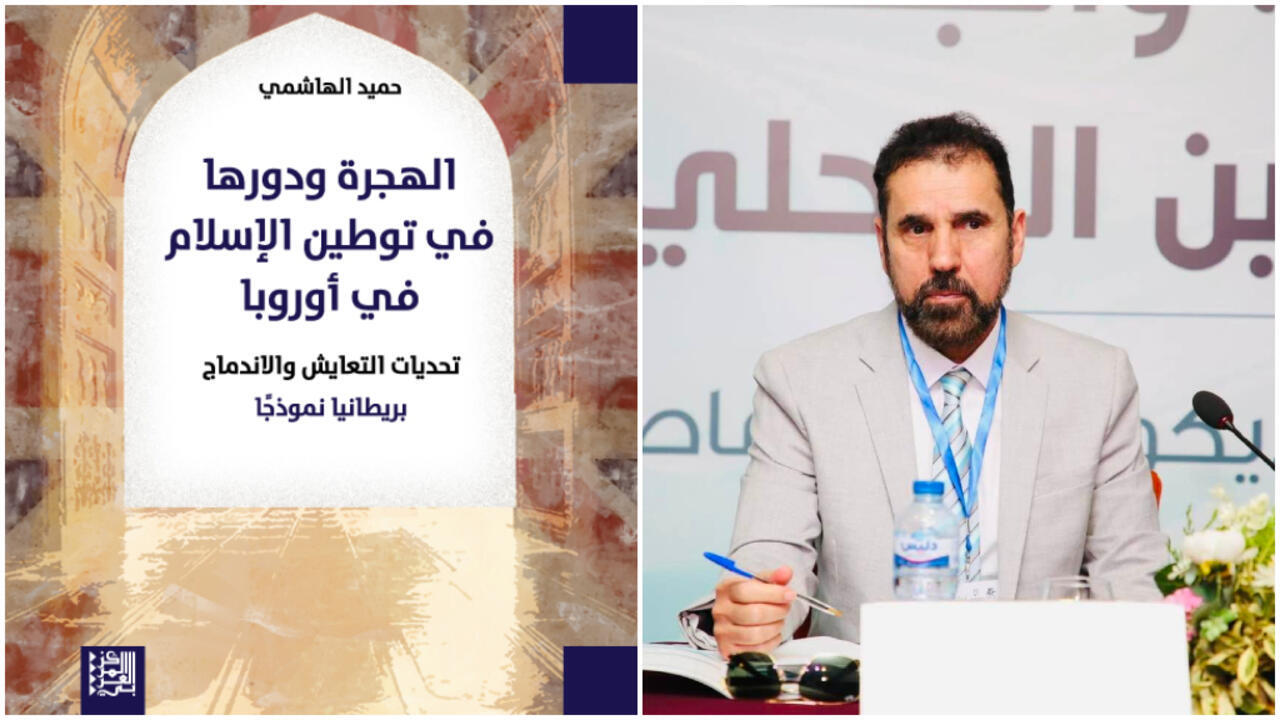Home » Interviews » Hamied Al-Hashimi: The New KSA’s Political Realism Exceeds Conventional Calculations
Interviews
Hamied Al-Hashimi: The New KSA’s Political Realism Exceeds Conventional Calculations
Published
2 days agoon
By
Huda Az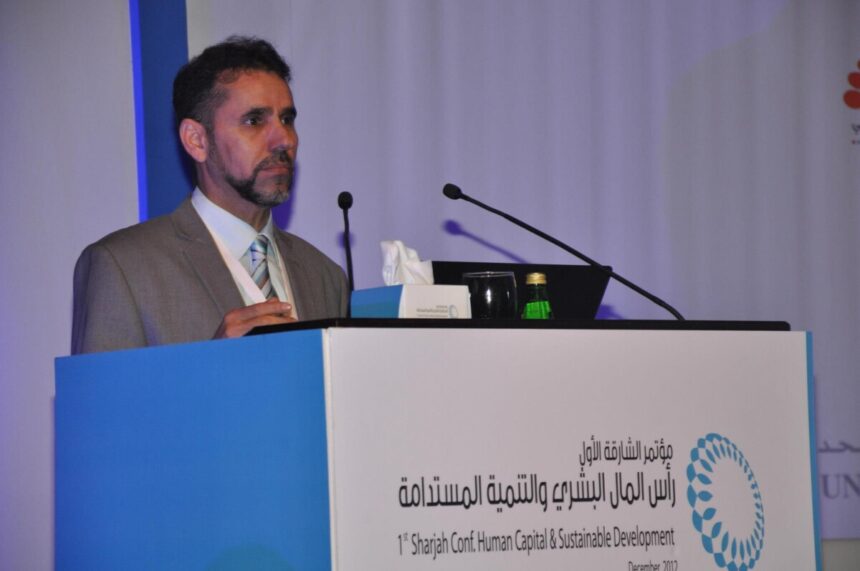
Iraqi researcher Dr. Hamied Al-Hashimi, a member of the Royal Anthropological Institute of Great Britain and Ireland, the Chartered Institute of Linguists, and the International University in London, is the guest of Arabisk London in this interview. In England, he works as a research associate at Coventry University. He also has research experience at the National Centre for Social Research in London and the University of East London.
Likewise, he served as a faculty member at April 7 University in Libya’s Faculty of Arts from 1994 to 1998. From 2001 to 2007, he was a research professor at the Dutch University of Europe for six years.
Interview by: Mohsen Hassan
The three main languages he speaks and writes are English, Arabic, and Dutch. He has extensive knowledge of political, strategic, and economic analysis in addition to his proficiency in science and academia.
The numerous works of Hamied Al-Hashimi reveal his special interest in Arab world issues, especially those concerning migration, conflict, and minorities. His contributions to research and his broad scientific participation in Arab and international conferences also show how interested he is in revealing the ambiguities surrounding the factors that determine national identity. Also, issues of social integration difficulties, intellectual development, and women’s place in society.
His most significant works include Al-Wardi and the Study of Iraqi and Arab Societies, Iraqi Armenians, Arabs and the Netherlands, and Iraqis in the Netherlands. In this dialogue, Arabisk London asked Dr. Al-Hashimi questions concerning our current regional and global reality.
First, Doctor, and from your point of view: What impact do Western-Russian tensions have on the Middle East, specifically in terms of power and energy alliances?
There are two ways to consider the consequences of this conflict. The first is economic: the disruption or prohibition of these goods in the two warring nations benefits Middle Eastern countries that produce food and energy, raising their prices.
The second is political since the opposing parties and their supporters are polarising and favouring the Middle East. One strategy to end the war is to activate allies or, at the very least, neutralise them so they do not support the opposing side.
The Arab nations are actually on the side closest to their Western allies, despite not supporting Ukraine. In short, the conflict between Russia and Ukraine has no substantial impact on the political or economic climate in the Middle East.
Is the Middle East regional order changing towards collective security arrangements, or is this just a theoretical issue, in your opinion? How would you rate Iraq’s official stance on these changes?
A new stage in the Arab-Israeli conflict has indeed begun. The theory of “liberating Palestine” has fallen apart after being reframed as “resistance” by a few parties, and Arab consensus has disintegrated to the extent that some are doubting their motives. We now live in a world that has shaped two opposing fronts and demands peace and normalisation. The conflict’s aftermath, which has persisted since October 2023, has brought about a new reality that challenges the first option—resistance—while not imposing the second. 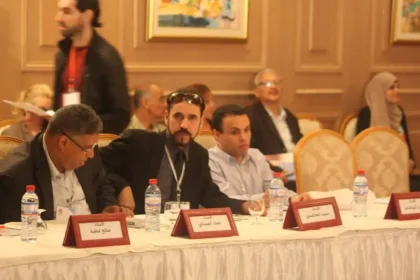
I doubt that anyone now anticipates going back to the state before the strikes on Hezbollah in Lebanon or the hour when Bashar al-Assad’s government collapsed. Even though some internal parties have expressed reservations due to the current Syrian leadership’s stance during previous periods of sectarian tension, Iraq’s (government’s) stance has been balanced thus far, particularly concerning the reform in Syria, where no official intervention has occurred. The stance has been marked by caution and then gradual normalisation with the new regime in Syria.
In general, realism will win out, and even those who oppose it will gradually come to accept it, despite ongoing concerns, particularly among Iran’s Iraqi allies. The refusal to allow Sharaa to attend the Arab Summit in Baghdad about a week ago demonstrated their reluctance. Meanwhile, many Iraqis, including those in the government and even the prime minister, Mohammed Shia Al-Sudani, have good intentions and agreed to meet with Sharaa in Damascus.
Regarding Syria, how do you see the situation there developing given the anticipated Arab opening to Damascus and the potential for the lifting of Western sanctions?
The Syrian Interim Government faces an even more formidable challenge and is under tremendous pressure. It involves transitioning from the stage of opposition to the stage of government, from the stage of idealism to realism, and from the stage of sectarian representation to the stage of the nation.
Rebuilding trust among its constituents, attaining security stability, reconstruction, resettling displaced people in their communities, compensating victims, rehabilitating them socially and psychologically, rehabilitating the Syrian economy, fostering trust with neighbouring nations, and other issues are all complicated crises that Syria must deal with.
Due to the substantial legacy of the previous regime and the effects of the civil war, the nation is thus entering a transitional phase that will likely last for several years. Thankfully, several Arab nations that can help ease these crises have backed the new government, raising hopes that it will recover sooner rather than later.
What do you think the future effects of Iran’s presence in Syria will be? Will that influence determine Damascus’s relations with Arab nations and the character of regional stability?
Any chance of repairing ties between Iran and Syria shortly is unlikely due to the ideological differences between the two regimes and the legacy of Iran’s involvement in Syria under the Assad regime, especially during the Syrian Civil War. Iran will not be able to re-extend into Lebanon, especially through Syria, due to regional realities.
In light of the events in Syria, Yemen, and Iraq, do you think Iran’s regional strategy has changed?
Iran has undoubtedly been forced into a new reality rather than given a choice by what happened to its allies in Gaza, southern Lebanon, and Syria. Iran is now forced to adopt new, more cautious strategies to maintain its remaining weapons in Iraq and Yemen.
Utilising US President Donald Trump’s pragmatic approach, which appears to prioritise economic benefits over all other factors, Iran is simultaneously seeking to resolve its conflict with the US.
What do you believe will happen to the US presence in Iraq as a result of Trump’s recent trip there? What about the anticipated Iranian course here?
Trump’s recent trip to the region did not include a visit to Iraq, but that does not imply that ties between the two nations are strained. In addition to having a military presence—albeit a much smaller one than in some other nations in the region—and a military agreement with Iraq, Baghdad is home to the largest US embassy. Additionally, under bilateral agreements, Iraq sells oil to the US at lower prices.
However, the United States does not consider Iraq to be a “single party.” Shiites are among its allies from numerous political groups represented in the government and parliament. It does not suspect, therefore, that some of these blocs have close ties to Iran. Iran has also grown used to the realities of US-Iraqi relations, including the US presence during the occupation.
Do you think Western sanctions against Iran will remain effective? Or is Tehran adapting to them?
Undoubtedly, these sanctions have significantly impacted the Iranian economy. According to reports and reality, the local currency has depreciated to all-time lows, inflation has surged, and Iranian citizens’ purchasing power has diminished. These sanctions, however, have imposed restrictions and besieged the Iranian nuclear programme. 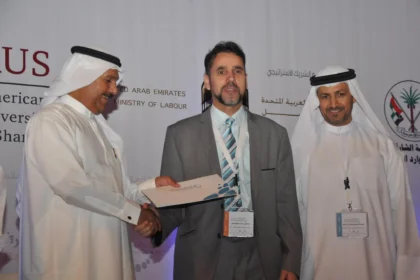
Tehran has, however, shown some capacity to adjust to the sanctions, even despite their harshness and the humanitarian impact they have on the supply of certain necessities, like technology and medicine. The sanctions have not entirely succeeded in achieving their stated political goals, especially in light of the Iranian regime’s actions on matters other than the nuclear problem, like its meddling in the internal affairs of certain neighbouring nations or its attitude towards Israel in particular.
What impact, in your opinion, has the Ukrainian conflict had on Iran’s reputation both locally and internationally?
The conflict in Ukraine may have contributed more than others to Europe’s obsession with domestic problems, and Iran’s alliance with Russia gives the former more clout both locally and internationally.
In addition to testing and marketing some of its most significant weapons, like drones, it has gained a strong ally in Russia, which has increased its profile in the arms and technology market overall.
Given both sides’ Western pressure, how do you interpret the rapprochement between Russia and Iran?
Indeed, it is a form of mutual aid. For instance, Russia’s alliance with Bashar al-Assad’s government amounted to an alliance with Iran, and Iran has taken a stance in favour of Russia in its war against the West in general, which is understandable given the adage “the enemy of my enemy is my friend.” As a result, it represents a convergence of interests and, to a large extent, a common trench.
How would you rate the new equilibrium between Saudi Arabia and Iran following the Al-Ula agreement, and how has it affected Gulf security?
Compared to the traditional administration that we are used to in the Kingdom, which takes a single, distinct stance and approach, it is evident that the Saudi political administration (with its new orientation) seems more adaptable and practical. But the contemporary method is now less “idealistic” and more grounded.
Stated differently, it has shifted from an ideological framework to one that is motivated by economic mechanisms, long-term plans, and rapprochement with the local environment, all in line with the tenet that “in politics, there is no permanent enemy and no permanent friend.”
Accordingly, with this new pragmatic approach to politics, it can now play a more conciliatory role than is expected to simply take a side.
How well, in your opinion, has Saudi Arabia used Vision 2030 and economic transformation to reshape its place in the region?
A well-rounded policy frequently puts its supporters in a position that is acceptable because sensible policy makes fewer enemies. Thus, since putting into practice a longer-term development strategy (Vision 2030) years ago, the Kingdom has in fact placed a greater emphasis on its internal affairs.
One of the tenets of this well-balanced policy is that “Your strength and independence increase as your financial self-sufficiency increases.” You will be more powerful in your environment if you are stronger and more well-liked. And beyond!
Do you think the Saudi-Syrian relationship has improved recently, and is it possible for the two nations to form a full-fledged political alliance?
Analytically speaking, there is no question that the resolution of the Syrian internal conflict will ease the headaches and anxiety it has caused for all parties involved in the region. Particularly for nations and regimes that were unhappy with the Assad regime and its allies’ unsatisfactory policies.
The new Syria stands to benefit the most from this relationship, given the significant support it will receive at various levels, including political support. Even though the presence of a new regime and ally is a significant positive for the international system as a whole, and the regional states within it. When Trump met with Sharaa and decided to consider lifting sanctions on Syria, it was clear that this support was beginning to pay off.
In terms of British-Gulf relations, how much have the effects of Britain’s recent political leadership change impacted ties, particularly with Saudi Arabia?
Following the Labour Party’s election to power, there are no signs that the relationship between Saudi Arabia and the other Gulf states has changed in any way. Yes, there are no explanations. Even after Britain’s exit from the European Union, economic and security ties are still necessary for all parties. Britain needs more allies for regional security and energy.
Does this account for Britain’s political and economic influence in the Gulf in the face of Europe’s overall decline?
Sure, for almost two centuries, when it was a colony, Saudi Arabia and the Gulf nations have maintained close historical ties with Britain. Because of its geopolitical and economic significance, Britain places a higher value on the Gulf region than some other European powers, who might be more interested in other areas.
In addition, the two sides have strategic and military cooperation as well as economic ties. Gulf nations also have a persistent desire to send educational missions and students to British universities and academic establishments. This fits under the “knowledge economy,” which is a major component of Britain’s strategy to revitalise its economy and re-establish its historical standing in the world.
My final query is: Will China truly be a viable alternative to the West, and what part will it play in the future of the region’s new political and economic equations?
China has long positioned itself as a political and economic powerhouse. Countries that invest in it are beginning to trust it more and more, and its role is gradually expanding. The simplest illustration is the brief conflict between India and Pakistan that started a few weeks ago. Pakistan used Chinese technology and weapons to show off its military might.
Moreover, unlike the US, China does not purchase political positions or force them on its allies; instead, its weapon is investments and the export of its industries. As a result, shortly, it will serve as a substitute for the main regional powers.
Lastly, given the nuclear problem, human rights concerns, and regional tensions, how do you envision the future of Iran-Britain relations?
The first hypothesis is that there are three possible outcomes. The first is a breakthrough given Iran’s adaptability in some challenging situations, including the agreements made with the West years ago, particularly the nuclear issue. Additionally, in certain internal affairs, such as the leniency regarding the hijab issue, which the end of the “morality police patrols” served as a symbol for approximately two months ago, the Iranian government can “bow to the storm,” as people know them.
Given the ongoing threat posed by the United States to Iran and the ongoing defiance (actions and reactions), the second assumption is that the current situation will persist for some time. A higher escalation, possibly even a worsening, is the third assumption.
Iran’s economic decline, the loss of its allies in the war against Israel, and Israel’s ongoing pressure on its allies to be more aggressive towards Iran all serve to support this. Israel and its allies striking each other in retaliation for Iranian nuclear reactors and military and economic interests would be the least of the possible consequences of this near-collapse. Iran would retaliate by attacking US regional interests, such as the Gulf states. Despite this, we support the second assumption, which holds that the current situation will persist for a longer amount of time.
You may like
-


Naseer Shamma to Arabisk London: Oriental music, Like “Hijaz” and “Bayat,” Maqams Give Youngsters a Sense of Security and Attractiveness!
-
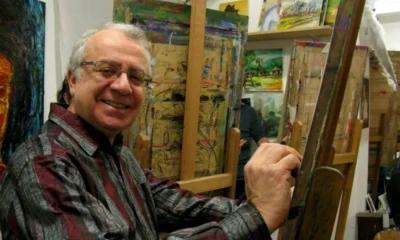

Iraqi Moayad Al-Haidari to Arabisk London: I was raised in a home where books lined the walls, and my passions were painting and radio!
-


Writer Sarah Al-Suhail to Arabisk London: Human Trafficking is the Most Horrific Crime Against Mankind, With Juvenile Recruitment into War is an Hourly Issue
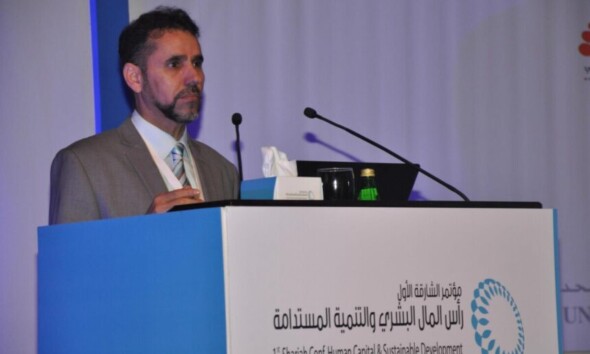
Hamied Al-Hashimi: The New KSA’s Political Realism Exceeds Conventional Calculations
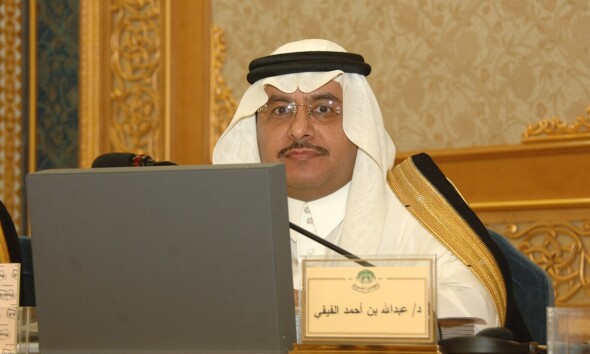
Abdullah Al-Faify, a Former Member of the Shura Council: Poetry is Regaining its Stature, and the Kingdom is Keen to Fight Racism

Honayda Al-Serafi has Won Fashion Capitals with Arab Touches
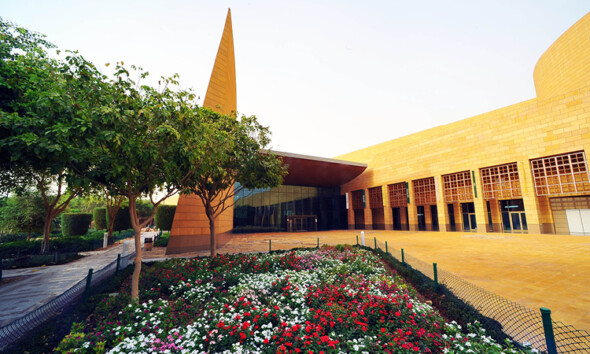
The Saudi National Museum: Preserving Culture & Celebrating Events

AlUla’s Numaj Hotel: A Lodging Encounter Blends Sustainability & Astronomical Heritage


